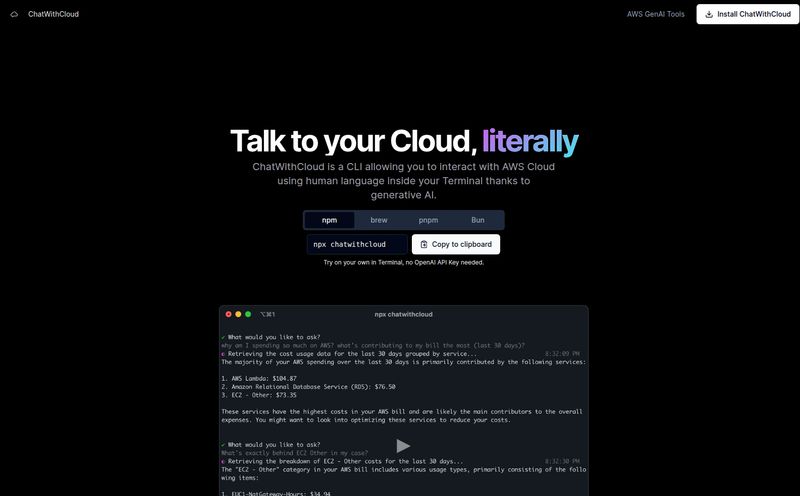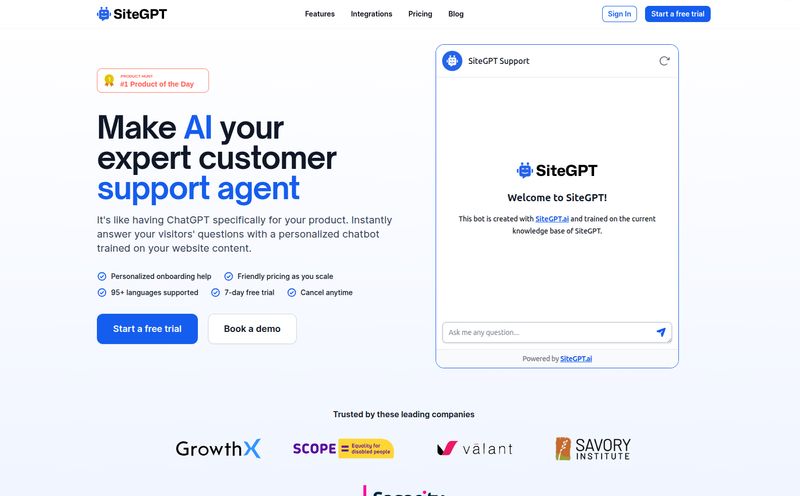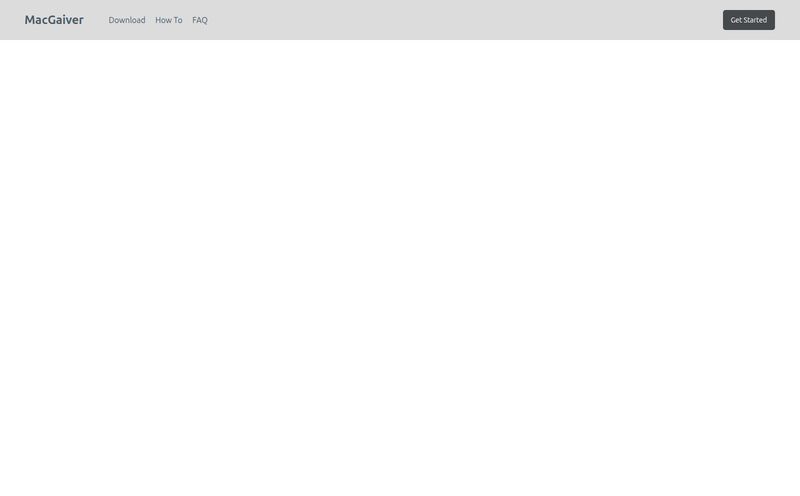The world of medicine is… a lot. I’m not a clinician, but I’ve spent years neck-deep in data and trends, and one trend that’s impossible to ignore is burnout in the healthcare field. Doctors, nurses, PAs—they're drowning in information, paperwork, and the sheer mental load of making life-or-death decisions. Every day, a firehose of new studies, patient data, and administrative tasks. It's a recipe for exhaustion.
So, whenever a new tech tool pops up promising to lighten that load, my ears perk up. Enter Glass Health, an AI platform that's been making some noise. It bills itself as an AI-powered clinical decision support (CDS) platform. But what does that actually mean? Is it just another piece of tech that creates more work, or is it a genuinely useful co-pilot? I decided to take a closer look.
So, What's the Big Deal with Glass Health?
Imagine having a brilliant, endlessly patient resident by your side, ready to help you brainstorm. That’s the vibe Glass Health is going for. At its core, it's an AI assistant designed to help clinicians think through complex cases. It's not here to take over, but to augment. A digital second brain, if you will.
Its main job is to take the raw data a clinician provides—symptoms, patient history, lab results—and help structure the thinking process. It's built to generate drafts for some of the most mentally taxing parts of the job. We're talking about drafting differential diagnoses, hashing out assessment and treatment plans, and getting quick answers to clinical questions. Think of it less as a self-driving car and more as an incredibly advanced GPS that suggests the best routes, but lets you keep your hands on the wheel.
The Core Features in Action
Okay, let's get into the nuts and bolts. Where does this AI actually help?
Drafting a Differential Diagnosis in Seconds
A differential diagnosis, for those of us outside the medical world, is basically a list of all the possible things that could be causing a patient's symptoms. It’s a foundational part of the diagnostic process. It's also a serious brain-burner. You have to recall hundreds of conditions, weigh probabilities, and connect disparate dots. Glass Health aims to streamline this. You feed it the clinical picture, and it generates a structured list of potential diagnoses, from the most likely to the rare-but-possible. This isn’t the final answer, of course. It's a starting point. A way to make sure no stone is left unturned, especially when you're tired at the end of a 12-hour shift.

Visit Glass Health
Building Assessments and Plans Without the Grind
After the diagnosis comes the plan. Documenting the assessment and the next steps is a huge administrative burden. I've heard from doctor friends that this “pajama time” work, finishing charts at home, is one of the worst parts of the job. Glass Health offers a feature to draft these plans. By generating a coherent, structured first draft, it could potentially shave hours off a clinician's week. Hours they could spend with patients, with their families, or, you know, sleeping. A novel concept!
Your Personal, On-Demand Medical Encyclopedia
Ever found yourself in a rabbit hole of web searches, trying to confirm a drug interaction or a specific diagnostic criterion? Glass Health acts like a highly specialized search engine. You can ask it direct clinical reference questions and get synthesized answers pulled from a vast corpus of medical knowledge. It's faster than sifting through multiple tabs and gives you the info you need, right when you need it.
The Good, The Bad, and The AI
No tool is perfect, right? Especially in a field as high-stakes as medicine. So let's have an honest chat about the pros and the very important cons.
What I think is genuinely great is the potential to enhance clinical decision-making. It’s a safety net and a sounding board. The user-friendly interface is another big plus; the last thing anyone needs is a tool with a steep learning curve. It’s designed to provide quick access to information and generate those crucial drafts, which is a massive time-saver. It's about efficiency and reducing cognitive load.
However, and this is a big however, you have to know its limits. The platform is very clear that it is NOT designed for medical image analysis. Don't feed it an X-ray, MRI, or CT scan. It also doesn't analyze data from in-vitro diagnostic devices. It’s a text and data-based reasoning engine. Period.
And here’s the most important part: its accuracy is completely dependent on the quality of the input. Garbage in, garbage out, as the old tech proverb goes. A lazy or incomplete patient summary will yield a lazy and unhelpful output. The clinician’s expertise in gathering and inputting the right information is still the most critical piece of the puzzle. Oh, and you’ll need a stable internet connection, which might be a hangup in some rural clinics or older hospital wings.
Who Is This Really For?
So, who's the ideal user? I see this being incredibly powerful for a few groups. Medical residents and students, for one. It’s an amazing learning tool to help them build and test their diagnostic reasoning. For seasoned clinicians in busy settings like primary care or the emergency department, it could be a game-changer for efficiency and for catching those one-in-a-million cases you might otherwise overlook. It's for the professional who understands that AI is a tool to be wielded, not a oracle to be blindly followed. It requires a human-in-the-loop, always.
What's the Damage? A Look at Pricing
And now, the question on everyones mind: how much does it cost? Well, for now, Glass Health is playing that card close to the vest. There’s no public pricing page, which is pretty common for specialized B2B or pro-level SaaS tools. They likely operate on a model that involves demos and custom quotes for individuals or institutions. My guess is we'll see a subscription model, perhaps with different tiers for individual clinicians, group practices, and large hospital systems. Your best bet is to reach out to them directly through their website.
Frequently Asked Questions about Glass Health
- Is Glass Health a replacement for a doctor's judgment?
- Absolutely not. It's designed as a clinical decision support tool. It provides drafts and suggestions, but the final medical decision and responsibility always rest with the human clinician.
- Can I use Glass Health to read my MRI or X-ray?
- No. The platform is explicitly not designed for acquiring, processing, or analyzing medical images of any kind. It works with text and clinical data you provide.
- Does Glass Health work without an internet connection?
- No, it requires an active internet connection to function, as the AI processing happens on their servers.
- How accurate is Glass Health?
- Its accuracy is heavily dependent on the quality, accuracy, and detail of the clinical information you provide. The more precise the input from the clinician, the more relevant and helpful the output will be.
- What is a differential diagnosis?
- It is a methodical process of listing and comparing potential medical conditions that could be causing a patient's symptoms. It helps guide further testing and treatment.
My Final Thoughts
Look, the hype around AI can be deafening. But sometimes, a tool comes along that feels… practical. Grounded. Glass Health seems to be one of those. It’s not promising to cure diseases with a button press. Instead, it’s offering to take on some of the grueling mental and administrative work that leads to burnout, freeing up our brilliant medical professionals to do what they do best: care for patients. As long as users understand its boundaries and treat it as the co-pilot it’s meant to be, I think Glass Health has a real shot at making a difference.
Reference and Sources
For more detailed information, feature requests, or pricing inquiries, please refer to the official platform website:



